General
Hon. Elioda Tumwesigye acknowledges the role of media in bridging the gap between scientists and communities
Published
7 years agoon
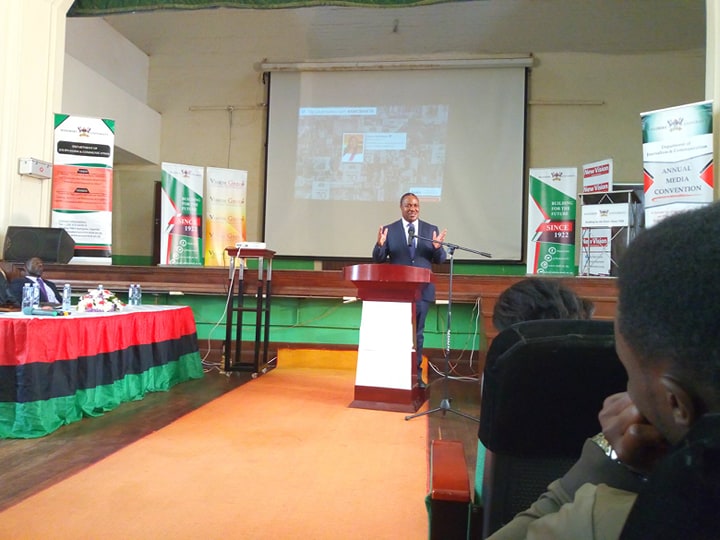
The Minister of Science, Technology, and Innovations Hon. EliodaTumwesigye, has acknowledged the tremendous role played by media in bridging the communication gap that has long existed between researchers/ scientists and communities.
Speaking to journalists, communication specialists, scholars, and scientific researchers at Makerere University Annual Media Convention on 25th April 2019, the Minister said that through media and other communication channels, useful research findings and Scientific information has reached communities in a simple and understandable manner.
“The media is key to creating this link between science and society as science not communicated is science lost. Publishing findings in journals is good but the information therein never reaches the public. By reporting about scientific developments, the media contribute to public understanding of and engagement with science and technology,” he said.

According to Hon. Tumwesigye, there is need to develop strong partnerships between scientists who generate the knowledge and the media who take it to society. Similarly, scientists also need to get out of their laboratories and communicate science and scientific information in a format easy for the public to understand if they are to remain relevant to society.
He commended social media as a handy tool through which information on scientific discoveries, innovations and other breakthroughs can be communicated. He also mentioned that through social media, scientific misconceptions have been corrected and consensus on controversial science subjects have been generated.
The Minister noted that currently, Science, Technology and Innovation and more specifically Information and Communication Technology (ICT) is a central driver of all aspects of human endeavor. The World’s most revolutionary innovations are driven by ICTs which constitute the 3rd Industrial revolution and are at the Centre of the 4th Industrial Revolution (4IR).
“Recently, while launching the National Task Force for the 4th Industrial Revolution (4IR), H.E. President Yoweri Museveni stated that: “The primer of all social change in society is the advancement in science and technology but in order to use it well you must integrate it holistically. You should not just come in at the periphery and you think that you are going to benefit.”
The Minister was excited to learn that Makerere University had become the champion in pioneering Science Communication as part of journalism and media training. He was also grateful to know that the University had strategically recognized social media as an additional tool for advancing science communication and public engagement.

The Makerere University Annual Media Convention (AMC) 2019 was organized by the Department of Journalism and Communication, College of Humanities and Social Sciences in partnership with SciDev. Net. The event brought together journalists and media practitioners, public communication experts, policy makers and government officials, academicians, civil society and development partners, as well as journalism students across the region to discuss and propose solutions on how to improve and advance journalism and communication with a critical focus on the role traditional and social media platforms play in disseminating scientific information in society. The event was organized under the theme: Communicating Science in the Social Media Age: Sharing Technical Information from Researchers to the Media”.
According to the Head, Department of Journalism and Communication Dr. William Teyebwa, the AMC 2019 provided a platform to the leading minds in the area of communication and journalism together with scientists and researchers to deeply analyze the concept Science communication, draw frameworks on the relationship between media and research and develop strategies on how journalists can work harmoniously with scientists to help communities.
“This year, we are paying much attention to how technical information from research institutions is reported to the general public, the challenges faced and how such information is discussed in society, in an attempt to improve science communication in Uganda,” said Dr. Tayebwa.

Representing the Vice Chancellor, Dr. Umar Kakumba, the Deputy Vice Chancellor for Academic Affairs said the world is driven by science and technology. “The dichotomy of the world along two economic poles, of developed and developing is mostly linked to the level of science and technology sophistication. This implies that science and technology play pivotal roles in the developing nations,” he said.
He however noted that Universities within the African Continent are producing large volumes of scientific research that has failed to serve its intended purpose of improving productivity and contributing to development due ineffective dissemination procedures.
“It is therefore important that we focus on having scientific research well disseminated using various forms of communication. The media is one of the most effective avenues for disseminating information as well as popularizing and moderating debate on issues that directly or indirectly impact the wellbeing of humanity. In this era, social media is one of the fastest and most cost-effective modes of communication that we should explore in promoting scientific research,” he remarked.
He thanked the Department of Journalism and Communication for the well thought-out theme, and called upon institutions of higher learning to pave way for the improvement of science communication and consequently contribute to scientific and technological advancement on the African Continent.

He appreciated the media for the support they have accorded Makerere University over the years. Dr. Kakumba said the media has been very instrumental in promoting Makerere University’s activities and this has greatly contributed to the visibility of University at the national and international levels.
He commended the Government of Uganda for supporting and promoting scientific research. “I thank the President for his support through the Presidential Initiative on Science and Technology that has resulted into a number of innovations that are transforming our country. I wish to let you know that the Government of Uganda in the next financial year (2018/2019), has committed UGX30 billion for research at Makerere University. With this money, Makerere University will continue to advance its research agenda as it contributes to transformation of lives.”
Addressing participants at the closing ceremony, the Deputy Vice Chancellor in charge of Finance and Administration, Prof. William Bazeyo described Science and Journalism as two important disciplines that make a lot of sense. “You cannot be a successful researcher if you cannot get someone to interpret your work and give it to community. Journalists have helped the people we serve to understand what we think. You are the only link between government, policy makers, and community,” he said.

The day’s theme was expounded by two keynote addresses from Prof. Emmanuel S. Dandaura- the Executive Director, Institute of Strategic and Development Communication, Nasarawa State University in Keffi Nigeria and Dr. Abraham KipropMulwo, Senior Lecturer, Department of Communication Studies at Moi University, Kenya.
Dr. Abraham KipropMulwo explained that the impact of scientific work is dependent on how effectively it is communicated. In his presentation titled, “Status and Future of Science Communication -Global and Regional Perspective”, Dr. KipropMulwo noted that public engagement with science depends on how the scientists and the public cooperate and allow people from the diverse background and varying scientific knowledge to voice their opinions in regard to scientific conversations.
“Much of Scientific research is funded through private and public resources, with the expectation that scientific work will contribute to resolving societal challenges. It is therefore important that the outcome of scientific research is effectively communicated,” he said.

Quoting Prof. Lewenstein, Dr. KipropMulwo said communicating science requires scientists to close the gap separating knowledge and belief in interacting with the public. He also mentioned that with the emergency of new media technologies, Data Centres and Research Digital Libraries (RDLs) are emerging as the pillars that support contemporary scientific communication.
“There are technologies and administrative personnel that help researchers to store, discover and share both data and publications. Furthermore, modern technological inventions such as telescopes, satellites and sensor networks help sci-tests to generate large amounts of data,” he stated.
He also noted that social media is rapidly transforming ways in which science is communicated. Previously, communicating science was a challenge to both the scientists and Science communicators. Science communication, when executed, was one way. With the inherently interactive nature of social media, communication has been made a two-way engagement process whereby scientists can receive criticism and questions from users of social media.
Dr. KipropMulwo however noted that in spite the emerging issues in development, the mainstream media and journalists in particular, remain underutilized as means of bridging the communication gap between scientists and societies within which they operate.
“The major challenge is science communication through mainstream media lacks a clear understanding of the science of science communication. It is relatively easy for scientists to communicate to their colleagues since they are aware of the information they need. The problem is when scientific information needs to be communicated to ordinary citizens. Scientists lack clear understanding of what the public wants and how to make complex scientific information simple. Moreover, the communication is mediated by journalists who still have their own interests on what to communicate,” said Dr. KipropMulwo.
In his keynote address on the “Nexus between Science, Media and Communication for Development”, Prof. Emmanuel S. Dandaura called upon media practitioners to put science into use by helping the public understand research results and make informed choices and decisions.

“Communication is what makes development happen, if people are not properly informed about scientific innovations and research, the findings will have little or no impact on society,” said Prof. Dandaura.
He noted that most of the Science Communication activities in Africa are driven by foreign based public relations firms. Prof. Dandaura also revealed to participants that most of the African Tertiary Institutions run omnibus journalism or mass communication programmes that hardly prepare the would be science journalists. He therefore made recommendations among which included;
• Regular trainings of media professionals, educators, scientists, on different aspects of sciences communication
• Integrate science communication into the undergraduates and post graduate curriculum
• Create opportunities for scientists and journalists to interact
• Understand the African agenda on science communication
• Advance science communication as a discipline within communication
• Encourage policy engaged research in the institution of higher learning
• Leverage on the new media technologies

The two keynote addresses were further enriched by two panel discussions and an interactive session. The sessions were chaired by Mr. Adolf Mbaine, DR. Charles WendoLwanga, Dr. Ivan Lukanda, Mrs Marjorie Nyitegeka, and Mr. John Baptist Imokola.
Panelists included;
• Ms. Barbara Zawedde, National Agricultural Research Organization
• Prof. Goretti Nasanga, Department of Journalism and Communication, Makerere University
• Dr. Samuel G. Oketch, College of Veterinary Medicine and Animal Bio-security, Makerere University
• Ms. GlorriaSebikari, Petroleum Authority of Uganda
• Mr. Hillary Bainemigisha, Columnist, New Vision
• Mr. Gerald Tenywa, Senior Reporter, New Vision
• Mr. Daniel Kalinaki, Convergence Editor, Monitor Publications
• Ms. Esther Nakazzi, Science and Technology Journalist
Among the day’s proceedings was the awarding of certificates to over 30 students of Journalism and Communication who successfully completed a one-year online short course in Science Communication. The certificates were handed over to the students by the Minister of Science, Technology, and Innovations Hon. EliodaTumwesigye together with DR. Charles WendoLwanga, the Director of Script Project, ScieDev.Net.
At the same function, Daily Monitor awarded Ms. Lyn Tukei with the Tebere-Mudin Award for the overall best performing student of Journalism and Communication. Ms Lyn Tukei graduated in January 2019 with CGPA of 4.29.

Ms. Betty Musasizi won the CranimerMugerwa Award for the best performing student in photojournalism. The award is sponsored by New Vision in honour of their treasured fallen photojournalist Cranimer Mugerwa.
The Deputy Vice Chancellor in charge of Finance and Administration, Prof. William Bazeyo pledged to support the best Journalism and Communication student with a token of UGX 2milion starting next academic year 2019/2020.
Representing Dr. Josephine Ahikire, the Acting Principal of College of Humanities and Social Sciences, Dr. Julius Kikoma applauded the Department of Journalism for consistently organizing the Annual Media Convention for the last 20 years. He thanked the 2019 conveners Mrs. Marjorie Nyitegeka and Dr. Ivan Lukanda for the wonderful and successful event.
Dr. Merit Kabugo who represented the Dean, School of Languages, Literature and Communication commended the leadership of Journalism and Communication on the tremendous developments.
“The Department has also been very instrumental in training many media specialists that we are proud of today. The good job you are doing should be maintained or even taken a notch higher,” he said.
Article by Nabatte Proscovia, Mak Public Relations Office.
You may like
General
Makerere University Leaders Call for Excellence in Research and Supervision as Academic Staff and PhD Students Receive Certificates
Published
6 days agoon
December 17, 2025By
Mak Editor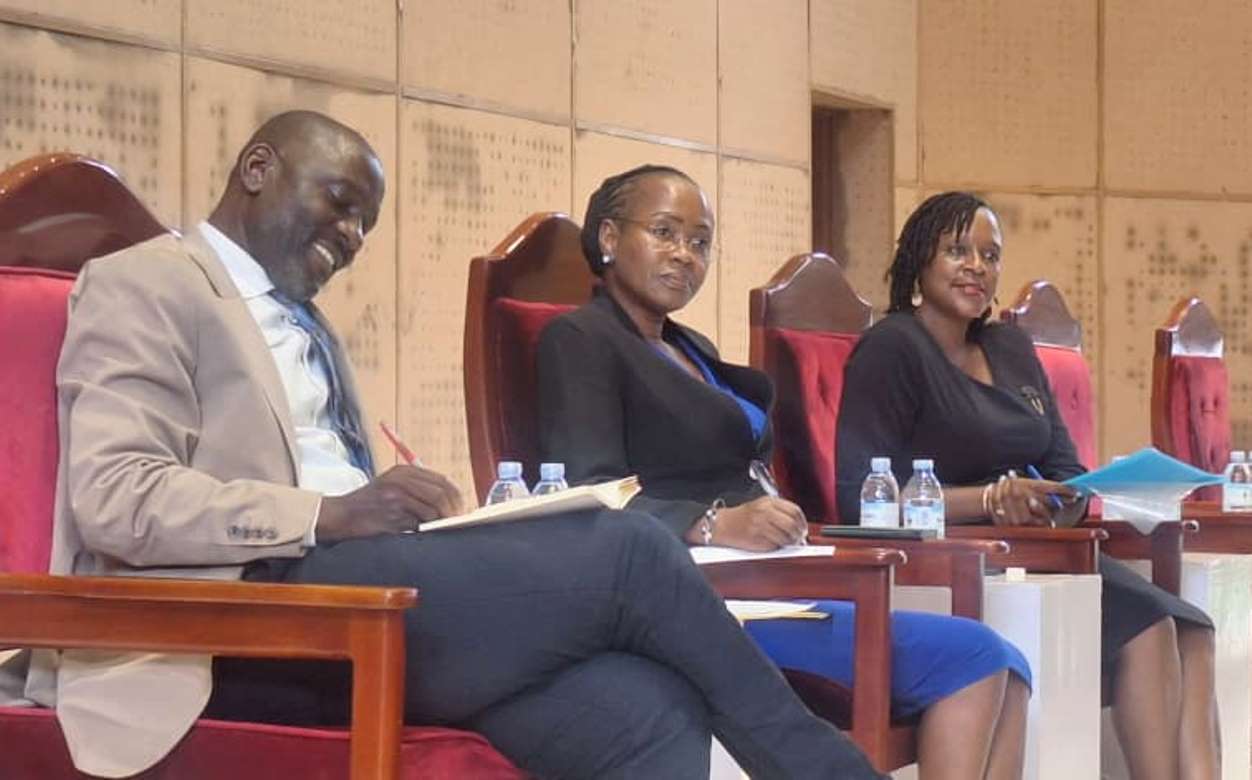
By Moses Lutaaya
Kampala, 15 December 2025 — Makerere University on Monday held a reflective and inspiring Certificate Award Ceremony at the CTF 2 Auditorium , Yusuf Lule to award academic staff who completed the Graduate Supervision and Mentorship Course and PhD Students who successfully undertook the University’s compulsory cross-cutting doctoral courses. The event was presided over by the Deputy Vice Chancellor – Academic Affairs, Prof. Sarah Ssali.
The ceremony honored the efforts and achievements of 58 academic staff members, 39 men and 19 women from various colleges including CEDAT, CAES, CEES, COVAB and COBAMS, who completed a rigorous three-week Graduate Supervision and Mentorship programme.
Additionally, PhD students were recognized for completing cross-cutting courses in Philosophy of Methods, Scholarly Writing and Communication, and Advanced Research Methods.
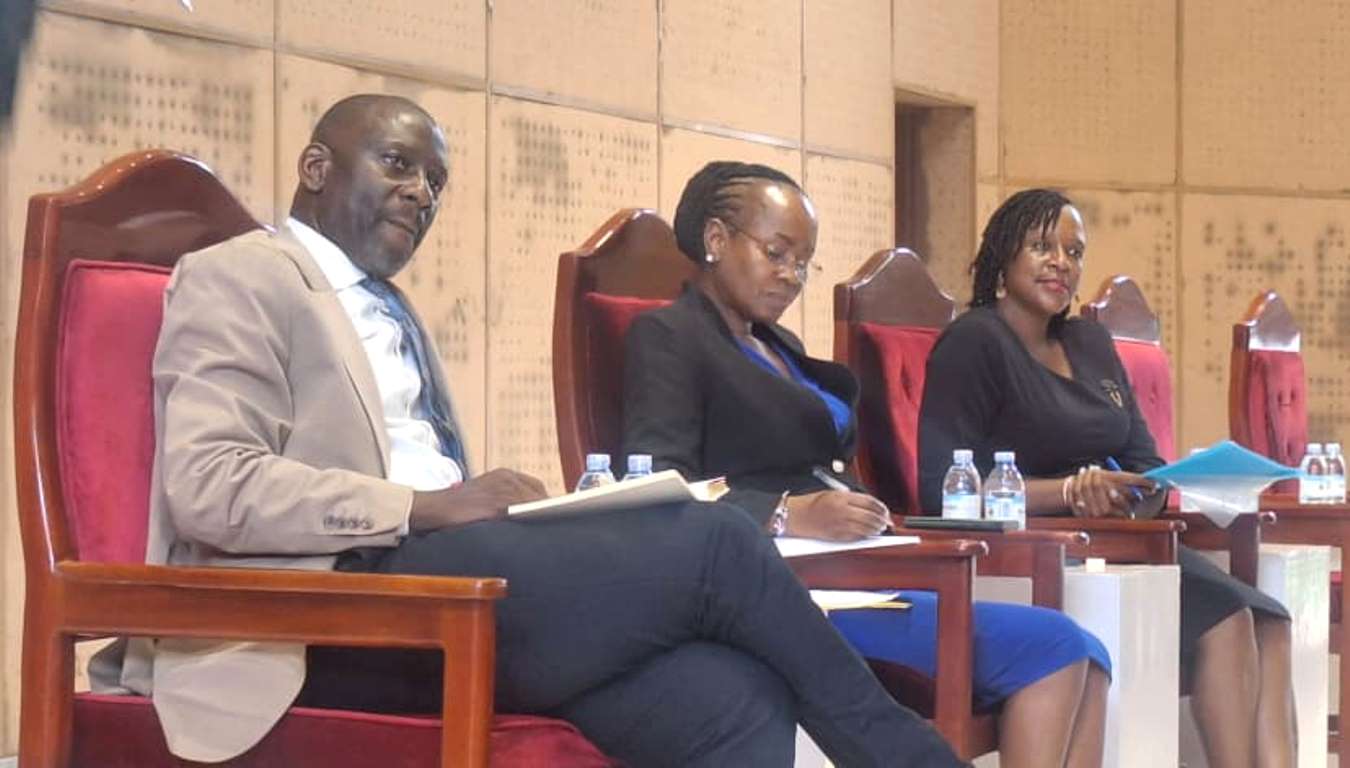
In her keynote remarks, Prof. Sarah Ssali, the Deputy Vice Chancellor–Academic Affairs, delivered a message of encouragement and renewed commitment to research excellence at Makerere University.
“It is both an honor and a privilege to be here today to celebrate a significant academic milestone, the completion of the PhD Cross-Cutting Courses by our students and the award of Supervision Certificates to our academic staff.”
“Your completion of this course is not just a personal achievement, but a critical contribution to strengthening the research and mentoring capacity of Makerere University.”
To the PhD students, Prof. Ssali offered warm congratulations and encouragement. “These courses have equipped you with essential tools to conduct high-quality, ethical research and to engage with complex academic questions. This achievement reflects your hard work, intellectual growth, and commitment to excellence.”
She reaffirmed Makerere University’s commitment to research advancement. “As a University, we remain deeply committed to fostering a culture of research excellence. We will continue to invest in both our students and our staff, ensuring that we uphold the highest standards in research and academic supervision.”
The Director of Graduate Training, Prof. Julius Kikooma, challenged the PhD students to approach research with urgency, intentionality, and a clear sense of purpose.
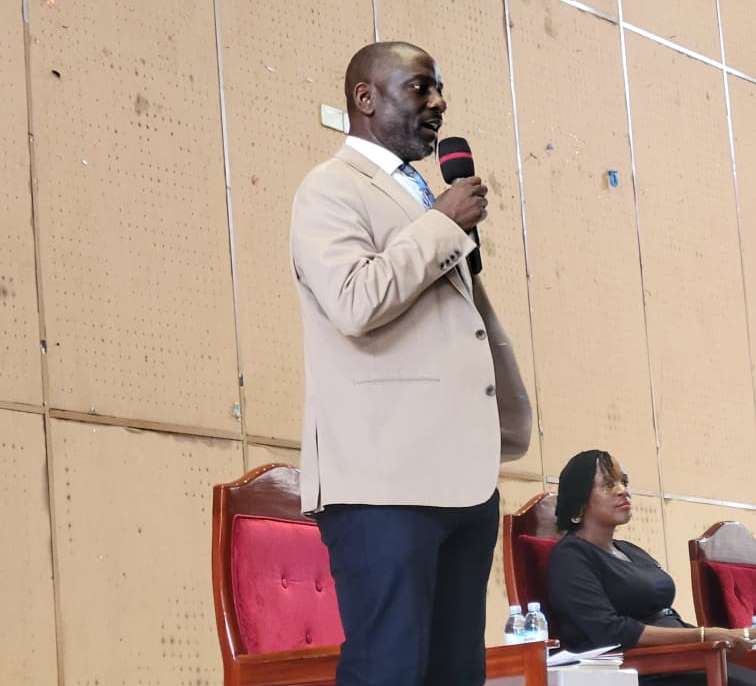
“Completing the crosscutting courses in Philosophy of Methods, Advanced Research Methods, and Scholarly Writing and Communication has not been an easy task. However, the certificate alone is not the end goal. Don’t simply compile these certificates. Make them meaningful.”
Prof. Kikooma emphasized that the value of the courses lies in applying the knowledge gained. “These certificates give you the foundation knowledge. The question now is: Can we see the application of that knowledge in your different fields?”
He further urged doctoral students to begin producing serious academic work now, not at the end of their studies. “If you are becoming someone to be listened to, start now. It means the course is becoming useful. Write about issues that speak to societal challenges. Produce thinking pieces. Produce better outputs. “Look for low-lying fruits that can make your PhD journey more exciting and impactful.”
Prof. Kikooma also reminded students that while the PhD journey is shared by the academic community, its weight is uniquely felt by the candidates. “Your PhD journey is ours as a group. But you feel the heat. Speak to us so we understand your challenges. “You cannot be here for more than three years. Why are some of you still here? Is the journey heavy? How can we support you to complete it?” He asked.
He encouraged students to build thought leadership through the PhD Forum, adding that the forum is a strong voice for the students. A PhD is automatic leadership in the knowledge domain. Why doesn’t the PhD Forum come up with periodic writings that reflect what communities are experiencing? Start now so that by the time you finish the course, you hit the ground running.”
The Ag. Director of the Centre for Teaching and Learning Support (CTLS), Dr. Dorothy Ssebowa Kyagaba, gave a message to the academic staff who completed the Graduate Supervision and Mentorship Course, speaking with admiration for their dedication and high level of engagement.

“I congratulate all the academic staff who have completed the three-week Graduate Supervision and Mentorship Course. Your commitment, hard work, and enthusiasm have been evident throughout the training.”
She described the course as a cornerstone of Makerere’s commitment to strengthening graduate supervision. “This course is a key component in Makerere University’s drive to strengthen the quality of graduate training, research supervision, innovation, and strategic partnerships.”
She highlighted the thematic richness of the training; covering Knowledge Production Perspectives, Supervisory styles, Supervisory meetings and conversation skills, Research Ethics, Intercultural supervision and diversity, Scholarly writing and feedback as well as Examination processes and Doctoral Viva. She expressed gratitude to the Directorate of Graduate Training led by Prof. Kikooma, and to Prof. Ssali for providing leadership that advances graduate training across Makerere University.
General
US$ 162m KEXIM Loan Approval Timely for Makerere University
Published
6 days agoon
December 17, 2025By
Mak Editor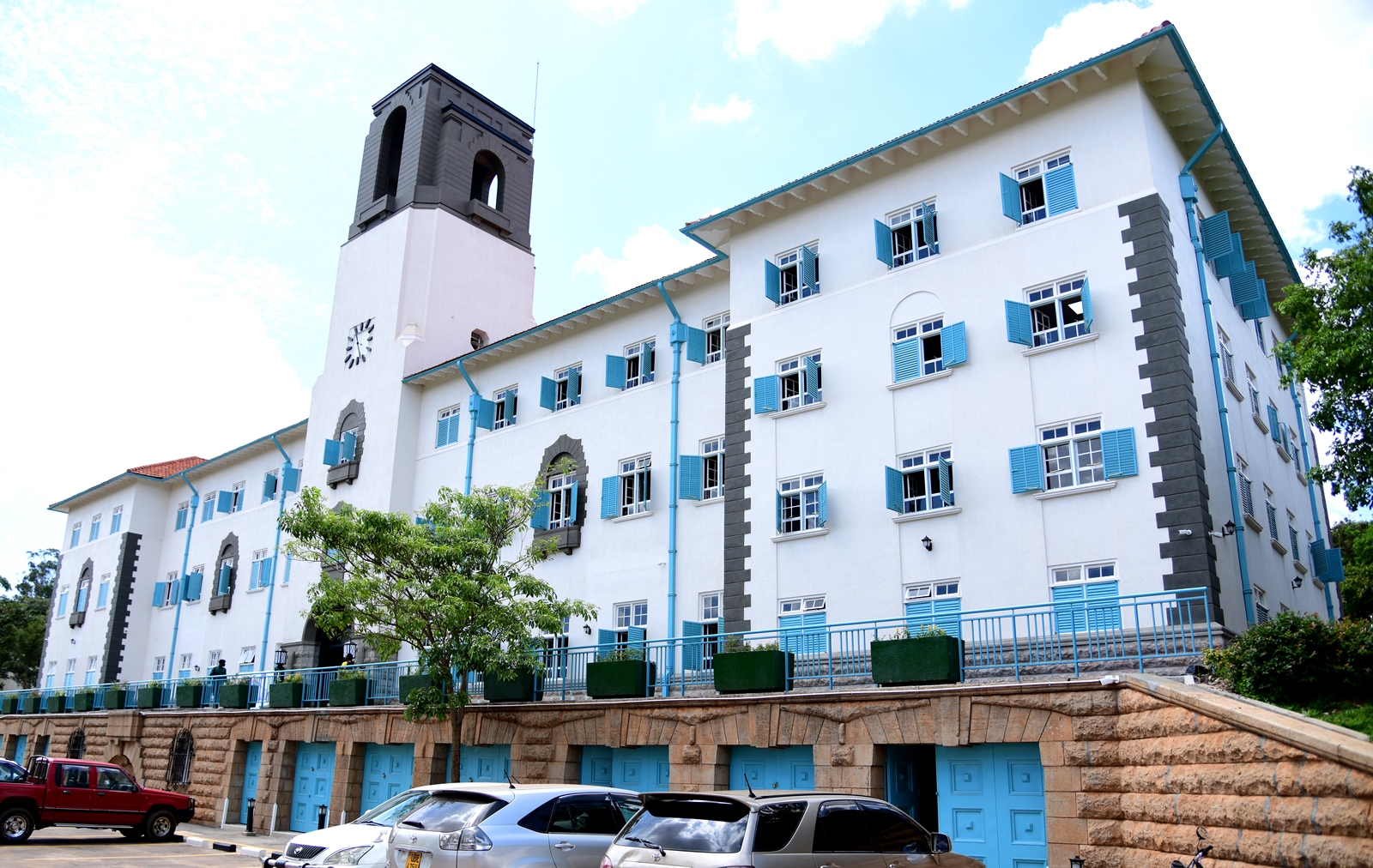
The approval by the Parliament of Uganda of a US$162 million concessional loan from the Korea Export-Import Bank (KEXIM) on 16th December 2025 marks a pivotal moment for Makerere University, as the institution enters the fourth year of its second century of existence. This funding approval comes at a critical moment as the university underscores its intention to become research-intensive, against the pressing need to align with global standards in science, technology, engineering, and mathematics (STEM) education.
With student numbers growing from 5,000 three decades ago to approximately 35,000 today, Makerere‘s facilities continue to be stretched. The loan’s timely approval during a plenary session chaired by Deputy Speaker Rt. Hon. Thomas Tayebwa, underscores the government’s commitment to revitalizing higher education amid national development goals outlined in the National Development Plan IV and the Ten-fold Growth Strategy.
Anticipated Developments
The loan will finance the construction of a state-of-the-art science and technology center, complete with advanced laboratories and innovation hubs for engineering disciplines. Upgrades to existing labs and smart classrooms at the College of Computing and Information Sciences are planned, alongside new buildings for Electrical, Civil and Mechanical Engineering Departments.
The College of Health Sciences will see expanded preclinical education facilities, and a dedicated structure for the School of Dentistry will incorporate cutting-edge equipment for dental technology, education, and clinical practice. These initiatives are not mere expansions; they aim to elevate Makerere to international benchmarks, fostering an environment where students can engage in hands-on research and practical training.
Furthermore, capacity-building programs will empower staff to harness new technologies, ensuring sustainable operations long after the 42-month implementation period, spanning financial years 2025-2026 to 2029-2030. The timing couldn’t be more opportune. Uganda’s ratio of science and technology graduates to humanities remains at 2:5, a ratio the loan is anticipated to improve to least 3:5 by 2030.
The loan facility addresses immediate challenges like inadequate spaces for growing programs, such as the Bachelor of Medicine and Bachelor of Surgery, which has seen a rise in intake, with increased interest from international applicants. Additionally, by investing in PhD training at Makerere, the loan reduces reliance on costly overseas programs, enabling resources to be redirected toward comprehensive educational enhancements.
Government’s Broader Strategy
Makerere as the premier regional institution has been prioritized to receive funding based on Government’s recognition of the trickle-down effect that enhancing the capacity at the university has on other higher education institutions and the education ecosystem. This approval builds on Makerere‘s legacy of resilience, positioning it as a beacon for African innovation. In an era where technological advancement defines global progress, this loan propels Makerere toward producing graduates equipped to tackle real-world challenges, from climate resilience to digital transformation.
Ultimately, the KEXIM loan is a timely catalyst for Makerere‘s renaissance. It not only revamps physical infrastructure but also reignites the university’s role in socio-economic transformation, with the Ministry of Education and Sports (MoES) as the executing agency. Therefore, as Uganda eyes Ten-Fold Growth from approximately $50 billion (2023) to $500 billion by 2040 via Agro-industrialisation, Tourism, Mineral-based industrialisation, Science and Technology/ICT (ATMS), empowering Makerere University is not just strategic—it’s essential.
Taking Stock of Previous Support
The African Development Bank’s (AfDB) US$29.2 million under the HEST program in 2016 funded infrastructure at Makerere, including two centralised teaching facilities with lecture rooms, auditoriums, e-learning labs, and specialized facilities like diagnostic, biotechnology, GIS, and computer labs. These transformed the skyline, enhanced large-class teaching, research access, and service provision to a thriving staff and students’ community.
General
Makerere University Hosts EU Delegation to Review Institutional Engagement in EU Cooperation Programmes
Published
6 days agoon
December 17, 2025By
Mak Editor
Makerere University today hosted a delegation of members from the European Union (EU) for a high-level engagement aimed at reviewing the University’s involvement in EU cooperation programmes. The meeting focused on the linkages between the Erasmus+ Programme, Makerere University’s internationalization strategy, and the related institutional management and coordination structures.
The delegation was received by Deputy Vice Chancellor (Academic Affairs) Professor Sarah Ssali, provided an overview of how EU cooperation programmes are coordinated across different offices within the University. She highlighted Makerere’s integrated institutional approach to managing EU-funded initiatives, emphasizing collaboration among academic units, administrative offices, and support departments to ensure effective implementation and sustainability of projects.
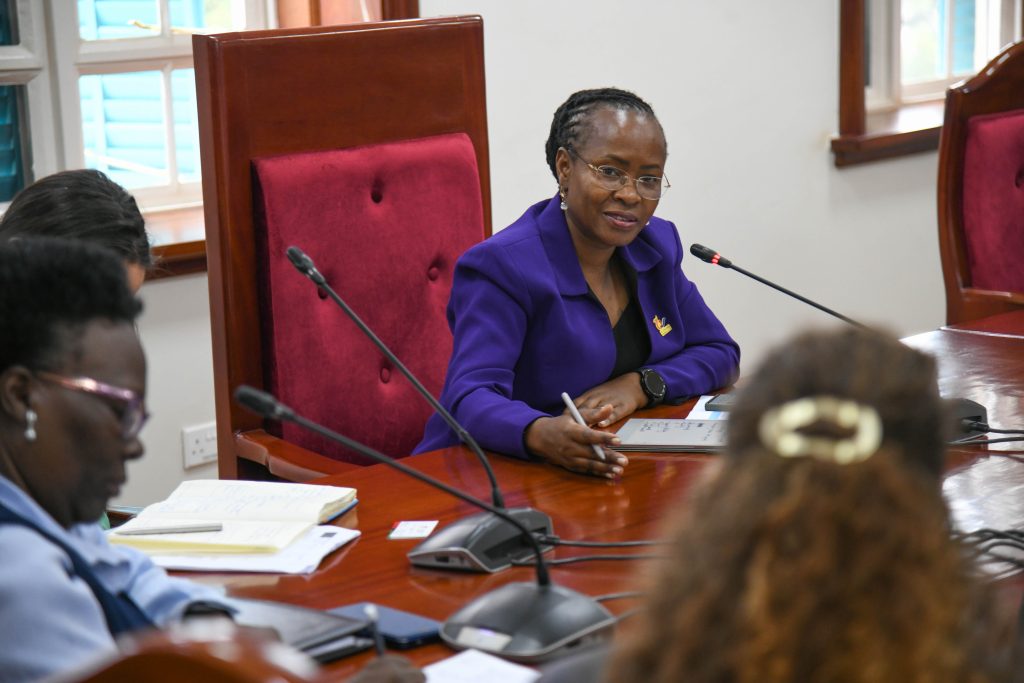
Prof. Sylivia Antonia Nakimera Nanyonga-Tamusuza presented an overview of how grants are handled at Makerere University, with particular emphasis on the role of the Grants Management and Support (GAMSU) Office. She explained that the office provides end-to-end support for externally funded projects, including proposal development, grant negotiation, compliance, financial accountability, reporting, and capacity building for project teams. The GAMSU Office plays a critical role in ensuring transparency, efficiency, and compliance with donor requirements, including those of the European Union.

The University Secretary, Mr. Yusuf Kiranda, addressed the meeting and outlined how the University’s resources are managed to support academic programmes and international cooperation initiatives. He further explained the role of the Office of the University Secretary in supporting students, including policy oversight, governance, student welfare, administrative coordination, and ensuring that institutional systems effectively support teaching, research, and international partnerships.
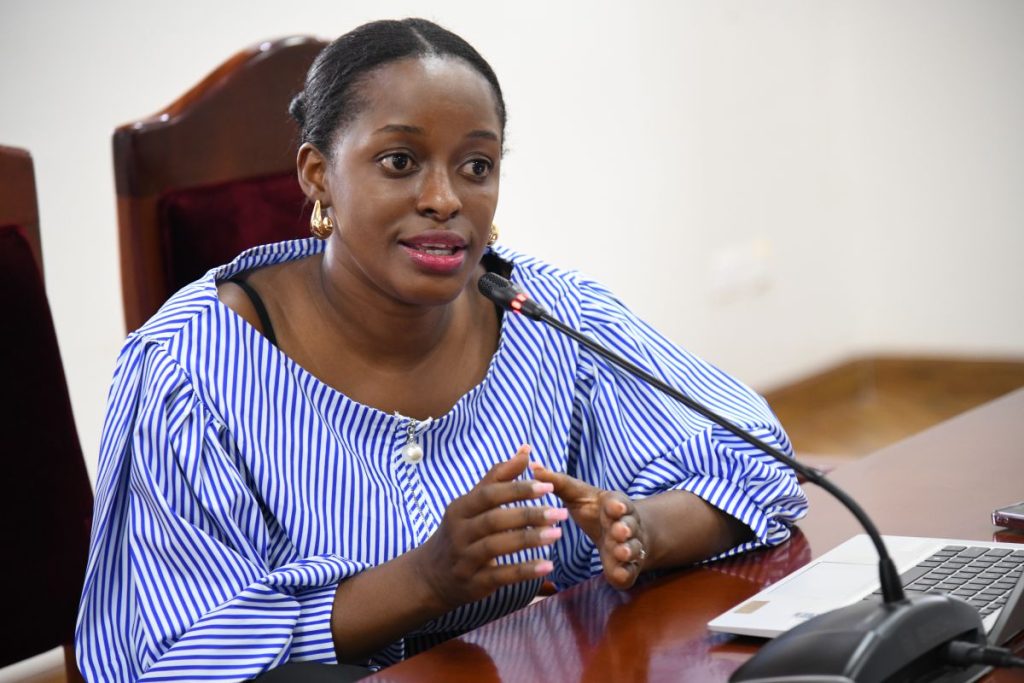
Ms. Betty Nabisubi from the International Relations Office (IRO) provided a comprehensive overview of how Erasmus+ programmes are coordinated within her office. She explained that the IRO supports Erasmus students and staff from the time they arrive at Makerere University until their departure. This includes orientation, immigration support, accommodation guidance, academic coordination, cultural integration, and continuous student support. She also highlighted additional services offered by the office, such as partnership development, mobility coordination, and facilitation of international collaborations.
Following the institutional presentations, project representatives were allocated 30 minutes for structured discussions with EU project contact persons. The session began with short presentations focusing on project results, impact, and sustainability, followed by an interactive discussion and question-and-answer session. The representatives presented their projects clearly and confidently, demonstrating strong outcomes and long-term impact aligned with both Makerere University and EU cooperation objectives.
Overall, the engagement was highly productive and fruitful, providing a valuable platform for knowledge sharing, reflection on best practices, and strengthening collaboration between Makerere University and the European Union. The discussions reaffirmed Makerere University’s commitment to effective internationalization, accountable project management, and sustained partnerships under EU cooperation programmes.
Trending
-

 Research4 days ago
Research4 days agoMakerere University Launches Knowledge-Sharing Platform to Drive Innovation and Economic Growth
-

 General6 days ago
General6 days agoMakerere University Leaders Call for Excellence in Research and Supervision as Academic Staff and PhD Students Receive Certificates
-

 Humanities & Social Sciences2 weeks ago
Humanities & Social Sciences2 weeks agoCollege of Humanities and Social Sciences Launches Five Groundbreaking Publications
-
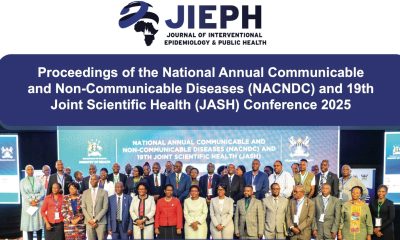
 Health2 weeks ago
Health2 weeks agoProceedings of the National Annual Communicable and Non-Communicable Diseases and 19th Joint Scientific Health Conference 2025
-
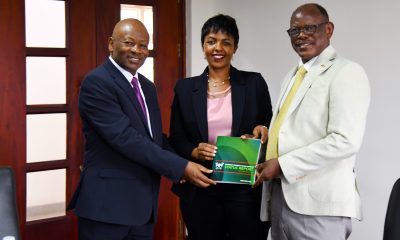
 Health2 weeks ago
Health2 weeks agoThree Years of Impact: Makerere University Health User Committee Presents Status Report
